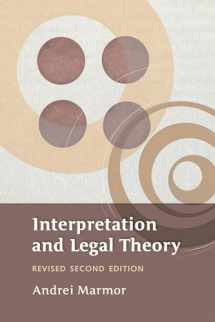
Interpretation and Legal Theory
Book details
Summary
Description
This is a revised and extensively rewritten edition of one of the most influential monographs on legal philosophy published in recent years. Writing in the introduction to the first edition the author characterized Anglophone philosophers as being ..."divided, and often waver[ing] between two main philosophical objectives: the moral evaluation of law and legal institutions, and an account of its actual nature." Questions of methodology have therefore tended to be sidelined, but were bound to surface sooner or later, as they have in the later work of Ronald Dworkin. The main purpose of this book is to provide a critical assessment of Dworkin's methodological turn, away from analytical jurisprudence towards a theory of interpretation, and the issues it gives rise to. The author argues that the importance of Dworkin's interpretative turn is not that it provides a substitute for 'semantic theories of law' (a dubious concept), but that it provides a new conception of jurisprudence, aiming to present itself as a comprehensive rival to the conventionalism manifest in legal positivism. Furthermore, once the interpretative turn is regarded as an overall challenge to conventionalism, it is easier to see why it does not confine itself to a critique of method. Law as interpretation calls into question the main tenets of its positivist rival, in substance as well as method. The book re-examines conventionalism in the light of this interpretative challenge.


We would LOVE it if you could help us and other readers by reviewing the book
Book review



